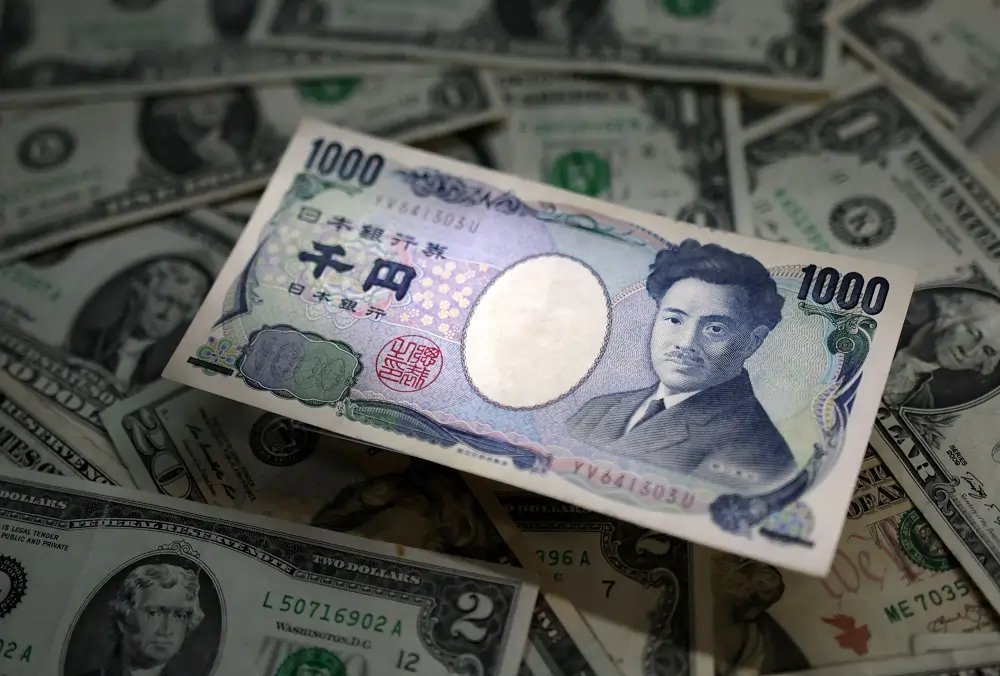Safe-haven currencies strengthen after Russia adjusts nuclear doctrine
Published by Jessica Weisman-Pitts
Posted on November 19, 2024
3 min readLast updated: January 28, 2026

Published by Jessica Weisman-Pitts
Posted on November 19, 2024
3 min readLast updated: January 28, 2026

By Chuck Mikolajczak
NEW YORK (Reuters) – Safe-haven currencies saw increased demand on Tuesday, with the U.S. dollar, the Swiss franc and the yen attracting buyers after Russia updated its nuclear doctrine in response to the escalating conflict with Ukraine.
Ukraine used U.S. ATACMS missiles to strike Russian territory for the first time, Moscow said, in an attack regarded by Russia as a major increase in hostilities on the war’s 1,000th day.
Putin approved the change days after two U.S. officials and a source familiar with the decision said on Sunday that U.S. President Joe Biden’s administration would allow Ukraine to use U.S.-made weapons to strike deep into Russia.
The dollar index, which measures the greenback against a basket of currencies, rose 0.1% to 106.33 after reaching a high of 106.63 in the session, with the euro down 0.25% at $1.0573.
But initial moves faded somewhat after Russian Foreign Minister Sergei Lavrov said the country will “do everything possible” to avoid the onset of nuclear war, while showing approval for Germany’s decision on Monday not to provide long-range missiles to Ukraine, calling it “a responsible position.”
In addition, the U.S. said it has not seen any reason to adjust its own nuclear posture in response.
We’re seeing a reversal after Lavrov’s comments, also the U.S. won’t respond to this change in the Russian nuclear doctrine, that’s played a role too in sentiment calming down here a bit,” said Erik Bregar, director, FX & precious metals risk management, at Silver Gold Bull in Toronto.
A nice three-week flush of over-leveraged long positions and geopolitical risk hasn’t gone away, it’s still a crazy, dangerous world out there.
The Japanese yen strengthened 0.43% against the greenback to 154 per dollar and rose 0.48% to 163.07 against the euro after strengthening to a six-week high of 161.50.
The dollar had strengthened as much as 9% against the Japanese currency since the beginning of October to as much as 156.74, rising above the 156 mark for the first time since July and sparking the possibility Japanese authorities may once again step in to shore up the currency.
Against the Swiss franc, the dollar weakened 0.11% to 0.882. The Russian rouble weakened 0.83% against the greenback to 100.571 per dollar.
The dollar index has been rallying on growing expectations the Federal Reserve may slow its path of interest rate cuts and on concerns incoming U.S. President Donald Trump’s policies could reignite inflation.
Expectations for the path of rate cuts have been dialed back, while volatile, in recent weeks, with markets currently pricing in a 58.7% chance of a 25 basis point cut at the Fed’s December meeting, down from 76.8% a month ago, according to CME’s FedWatch Tool.
The European Central Bank is also expected to continue cutting interest rates in an effort to stimulate growth in the region.
In the latest comments from ECB policymakers, Fabio Panetta said on Tuesday the central bank should cut interest rates so they no longer curb economic growth, or so they even stimulate it, and give more guidance now that post-pandemic shocks are abating and inflation is normalizing.
Panetta’s comments came after two top ECB policymakers on Monday signaled that they were more worried about the damage that expected new U.S. trade tariffs would do to growth than any impact on inflation.
Sterling weakened 0.28% to $1.264.
(Reporting by Chuck Mikolajczak; Editing by Susan Fenton)
The dollar index measures the value of the U.S. dollar against a basket of foreign currencies, providing an indication of the dollar's strength in the global market.
Interest rates are the cost of borrowing money or the return on savings, expressed as a percentage of the amount borrowed or saved, influencing economic activity.
Currency hedging is a financial strategy used to protect against potential losses from fluctuations in exchange rates, often involving derivatives or forward contracts.
Monetary policy refers to the actions taken by a central bank to manage the money supply and interest rates to achieve economic goals such as controlling inflation and promoting growth.
Explore more articles in the Trading category











